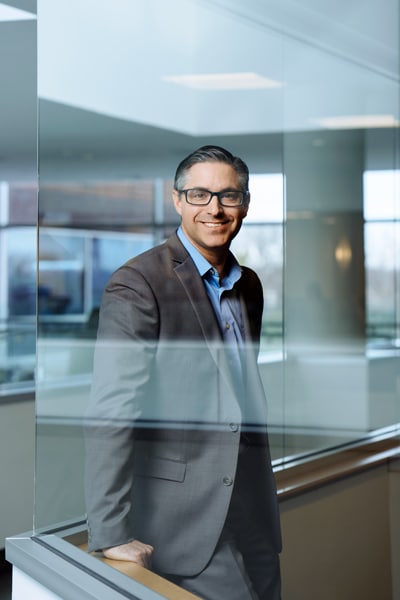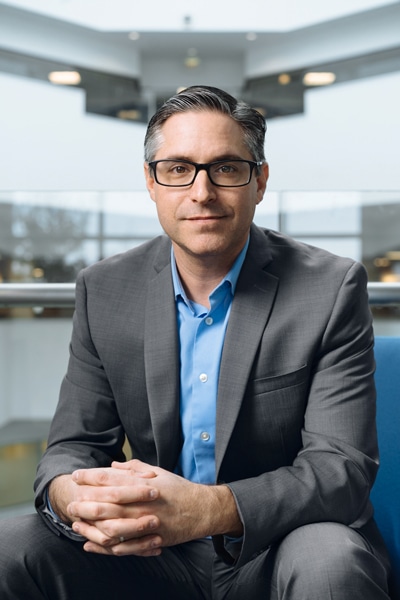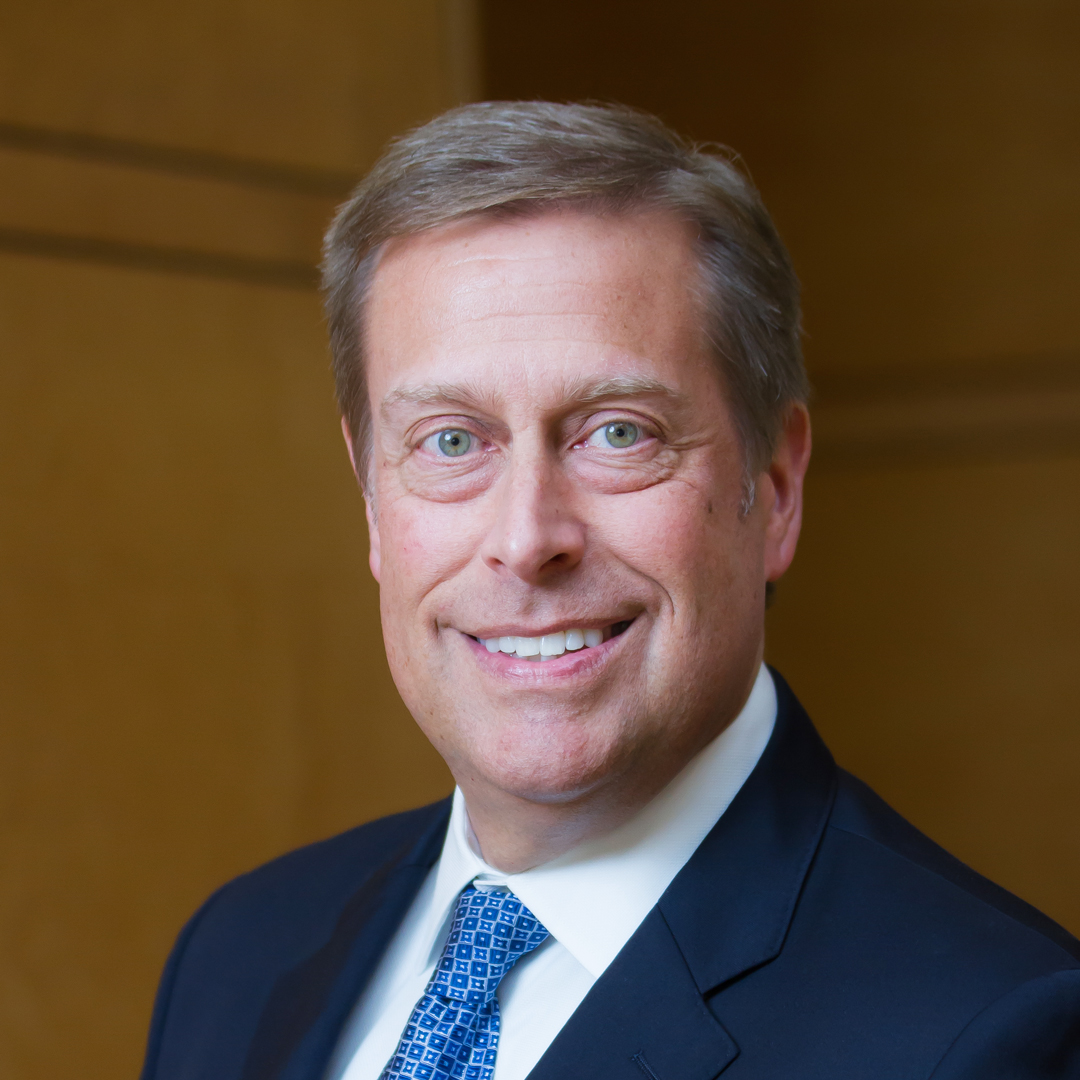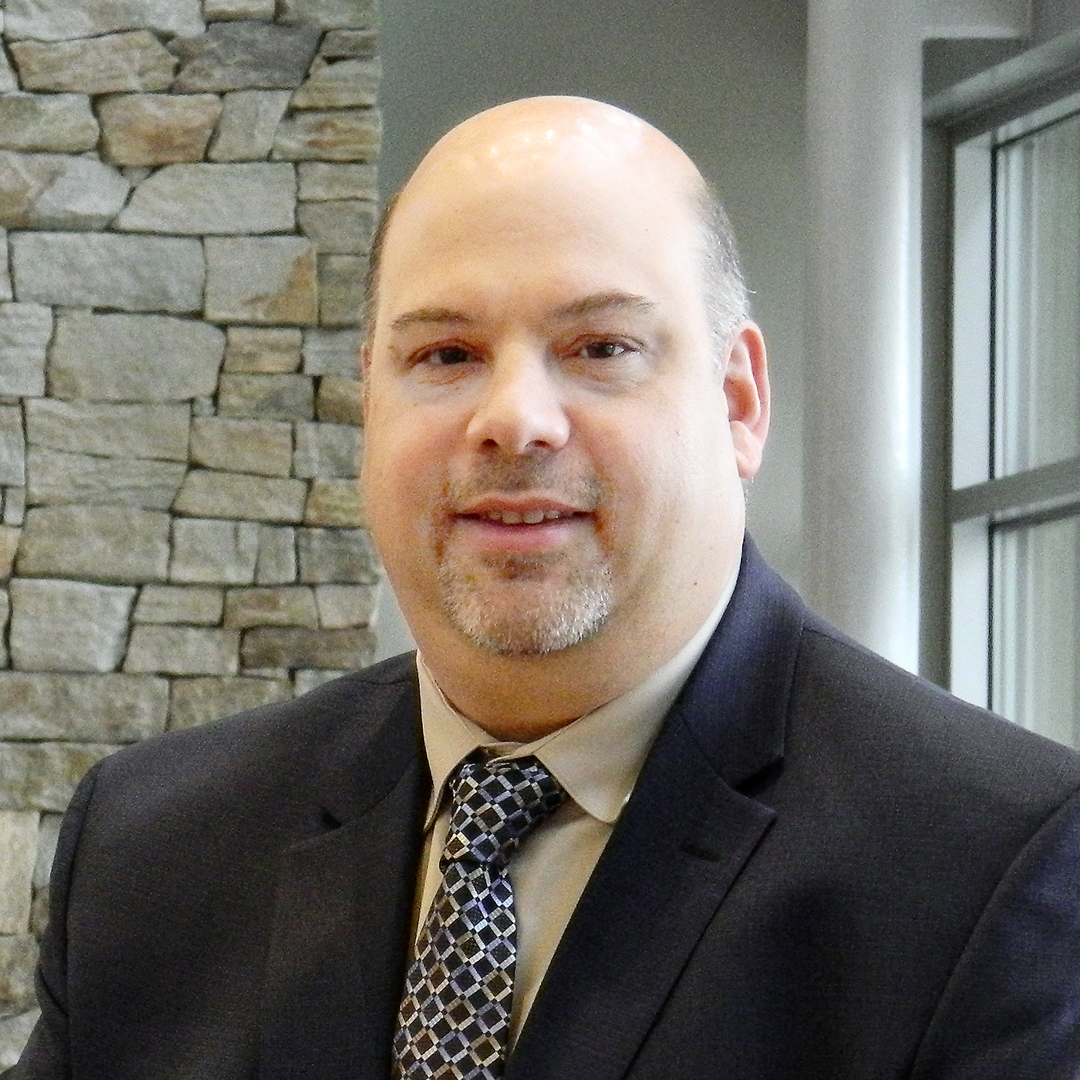Richard Eskew may be Accolade’s chief privacy officer, but he works hard to make sure his colleagues have no trouble finding him. Being available to talk and answer their questions is one of the ways that Eskew, who also serves as general counsel for the personalized advocacy solution, helps keep privacy and security top of mind for Accolade’s more than nine hundred employees.
Accolade, a single point-of-entry to personalized health and benefits, reduces the costs and complexity of healthcare by empowering its nearly 1.5 million members to make smart healthcare decisions. Accolade customers are typically self-insured employers, and Accolade supports employees and their families enrolled in those health plans. “Accolade combines highly-intelligent technology, clinical expertise and compassion to help individuals make the right healthcare decisions at the right time,” says Eskew, which means going beyond standard transactional questions such as “Is this doctor in my network?” and diving deeper into the behavioral, social, community, and lifestyle factors that impact an individual’s health.
“We want to get past the typical barriers and personalize the experience for members,” he explains, “so that we can really help them access the healthcare system in a more efficient way that will get them better health outcomes.” By helping members make smart decisions, Accolade can reduce healthcare costs for members as well as employer customers, while also improving health outcomes for members.
To do that, Eskew says, requires that Accolade build trusted relationships with its members, and that’s where he comes in. “Making sure we’re handling people’s very sensitive personal information and protected health information in a private and secured way is part and parcel of building that trusted relationship,” he says. “Everything we do here at Accolade is built with privacy and security of data in mind—top of mind—from the outset.”
Getting the Message Out, and Listening for the Response
Eskew oversees training modules that lay the foundation for protecting privacy and building trust, including new-hire, quarterly, and annual trainings. But Eskew says the “set it and forget” model isn’t enough. “It’s that feedback loop we have that makes our program really special,” he explains. “We’re listening to what’s going on in the day-to-day operations, and we’re providing timely guidance and feedback back into the system.”

He recognizes that health events happen in real time, so he set up his team to be able to respond quickly to questions from member facing-representatives, called Accolade Health Assistants and Nurses who support members. “We can’t predict every scenario, so we need to have that ability to react on the fly,” he says. For example, a situation where a child is hurt while being cared for by a relative who’s not their guardian may lead a Health Assistant to connect with Eskew’s team to confirm the best way to handle situation. “We’re able to provide quick guidance in the most compliant and private way possible, while also making sure that we’re giving support to help that individual out,” he says.
Another way Eskew makes himself—and the topic of privacy—accessible is by making sure that he’s approachable. He hosts brown bag lunches with teams across the organization to get ongoing feedback and answer questions. And in one of his training videos, he goes in front of the camera, using humor to act out different scenarios that employees might encounter to illustrate how privacy is embedded in all areas of the organization.
“I try to make it really fun for people, really interactive,” says Eskew, noting that if he hadn’t become a lawyer, he might have gone into acting. “I think it helps people know that I’m there for them just as much as we need them there for us and our members.” The approach seems to be working—employees come up to Eskew to say how much they liked the video, which should also make it easier for them to approach him when they have an issue they need help with.
Building Trust by Building Relationships
Eskew can tell he’s reaching Accolade’s employees by how busy his team stays. “I know we’re getting the message out when people are getting back to us with questions,” he says. A lot of the questions arise not from the unanticipated scenario so much as the employee wanting to confirm that they are handling the situation correctly—which, Eskew says, they always are. “That level of engagement tells me that we’re having success.”

Another measure of success is in Accolade’s market reach. “We have some really sophisticated customers of all sizes that understand our program and have entrusted us with their employees’ sensitive information,” Eskew says. That also means entrusting Accolade to build relationships with their employees and families, which couldn’t happen without protecting their privacy.
Eskew finds that the same approach he takes to privacy and feedback has also enhanced the other aspects of his role, including risk management. “One of the key ways I’m able to identify and work through any risks to the company is by building a relationship with everybody in the organization so they feel comfortable coming to me,” he says. “When you’re an in-house lawyer, you think of all employees as your client. I have over nine hundred clients here at Accolade.”
He also works to build trusted relationships with Accolade’s corporate customers, whether it be their compliance teams, their privacy teams, or other leaders. “A company does not grow this rapidly if customers don’t trust both the service and the people running and overseeing that service,” he explains. “A big part of what I think about every day is making sure that as a team, we’re building those relationships.”
All Rowing in the Same Direction
Eskew calls his team of four “small but mighty,” but he recognizes that they are not alone in driving the importance of privacy and trust through the organization. Day-to-day support is provided by Accolade’s experienced information security team, who work hand-in-hand with the privacy team, and continues up to the top of the organization. “Our entire executive leadership and management team is focused on this stuff, because it’s so important,” Eskew says. “I’ve been around the block enough where I can confidently say that not every organization has everyone rowing in the same direction.”
Every major meeting at Accolade starts with a real-world example of how the company has supported a member. “Our team understands that we don’t get to the outcomes—these wonderful stories of how we’ve helped individuals—if we don’t start with that trusted relationship.”
While he may not know what questions or challenges each day will bring, Eskew feels motivated knowing that he and his colleagues are aligned in upholding Accolade’s values and moving the organization forward.
“I have a real passion for this stuff. As much as I could come at it from a highly technical perspective, at Accolade, I really come at it from the mission perspective and supporting the people who are improving people’s lives every single day,” says Eskew.


